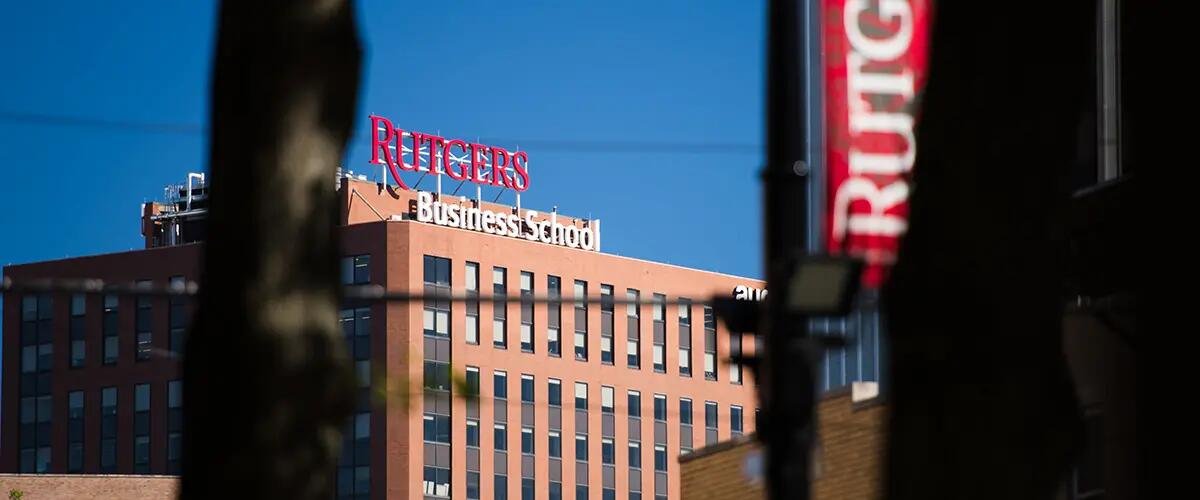The CEOs of America’s largest companies have often walked through the halls of the world’s top universities. But where exactly do these Fortune 500 leaders earn their business education? While elite Ivy League schools are well represented, many Fortune 500 CEOs also come from public universities, regional business schools, and specialized MBA programs that prepared them to lead in industries ranging from tech to finance to manufacturing.
Today’s corporate leaders show that business success can begin at a variety of schools, not just the most famous ones. Let’s dive into the business schools shaping the top executives of 2025.
The Ivy League Legacy: Still Prominent
Harvard Business School Leads the Pack
Harvard Business School continues to be the most common MBA alma mater among Fortune 500 CEOs. The school’s focus on case study learning, leadership development, and a global network helps graduates advance into top leadership roles.
Notable alumni:
-
-
Andy Jessy, CEO of Amazon
-
David Solomon, CEO of Goldman Sachs
-
Shantanu Narayen, CEO of Adobe
-
The Wharton School at the University of Pennsylvania
Wharton has also produced a strong roster of CEOs in finance, healthcare, and technology. Its rigorous focus on analytics and leadership strategy continues to resonate with today’s corporate leaders.
Notable alumni:
-
-
Sundae Pecha (completed additional education at Wharton), CEO of Alphabet
-
Alex Gorski, Former CEO of Johnson & Johnson
-
Columbia Business School and Stanford GSB
Columbia Business School and the Stanford Graduate School of Business each have significant representation, particularly in finance and technology industries.
-
Stanford GSB stands out for tech entrepreneurship and innovative leadership.
-
Columbia leverages its New York City location to connect students with financial powerhouses.
Public Universities: Rising Influence Among CEOs
University of Michigan – Ross School of Business
Ross alumni have risen to lead companies across industries like automotive, manufacturing, and consulting. Michigan’s focus on action-based learning and Midwestern work ethic resonates with future leaders.
Notable alumni:
-
-
Mary Barra, CEO of General Motors
-
University of Virginia – Darden School of Business
Darden’s rigorous case study approach and leadership focus have helped graduates excel in consulting and finance leadership roles.
Indiana University – Kelley School of Business
Kelley’s practical approach to business education and strong alumni network have supported leaders in retail, logistics, and consumer goods.
Surprising Alma Maters of Fortune 500 CEOs
Not all CEOs attended Ivy League or big-name business schools. Many earned their MBAs from regional universities or public institutions that provided them with practical business knowledge and leadership skills.
University of Arkansas – Sam M. Walton College of Business
Doug McMillon, CEO of Walmart, earned his MBA from the University of Tulsa but began his undergraduate journey at the University of Arkansas, reflecting a pathway that blends academic excellence with real-world experience.
Texas A&M University – Mays Business School
Texas A&M graduates have held CEO roles at energy companies and tech firms alike. The school’s focus on leadership values and industry partnerships makes it a significant force in business education.
University of Central Oklahoma & Regional Colleges
Several CEOs, especially in energy, manufacturing, and consumer goods, started at lesser-known colleges, proving that leadership potential can emerge from any educational background.
What Business Schools Teach That Shape CEOs
Strategic Thinking and Decision-Making
Most top business schools emphasize case studies, simulations, and strategic frameworks to help students make high-stakes decisions—essential skills for any CEO.
Leadership and Organizational Behavior
Successful CEOs must lead diverse teams, build company culture, and inspire innovation. Business schools with strong leadership development programs and team-based projects create graduates who excel in these areas.
Global Business and Ethics
As companies grow globally, business leaders must understand international markets and practice ethical leadership. Schools like Harvard, Wharton, and Stanford incorporate these topics deeply into their curriculums.
Industries and Schools: A Dynamic Match
The business school a CEO attends often reflects their industry path:
-
Tech CEOs: Stanford GSB, MIT Sloan, and Wharton lead the pack for tech sector leadership.
-
Finance CEOs: Wharton, Columbia, and Booth School of Business consistently produce finance leaders.
-
Manufacturing & Retail CEOs: Public universities like Michigan Ross, Indiana Kelley, and Texas A&M play a large role.
-
Healthcare CEOs: Duke Fuqua School of Business and Northwestern Kellogg have rising influence.
Fast-Growing CEOs Without an MBA
Interestingly, some Fortune 500 CEOs never pursued an MBA, instead relying on undergraduate business or engineering degrees paired with real-world leadership experience.
-
Tim Cook, CEO of Apple: MBA from Duke Fuqua
-
Elon Musk, CEO of Tesla & SpaceX: Holds degrees from Wharton (undergrad) but no MBA
-
Mark Zuckerberg, Meta CEO: No MBA but briefly attended Harvard
This diversity highlights that while an MBA is valuable, it is not the only path to leadership.
Business Schools Building the Next Generation of CEOs
Beyond the Ivy League, many schools are developing CEOs by offering programs focused on innovation, entrepreneurship, and industry partnerships:
MIT Sloan School of Management
MIT Sloan’s strength in technology management and entrepreneurship is fueling the next generation of startup CEOs.
Berkeley Haas School of Business
Haas’ culture of principled leadership and innovation prepares graduates to lead in dynamic industries.
University of Texas at Austin – McCombs School of Business
With its location in Austin’s tech hub, McCombs helps students build leadership careers in both startups and major tech firms.
Common Characteristics of Fortune 500 CEO Education
A Focus on Practical Learning
Most CEOs favor schools with hands-on projects, global immersion, and leadership development, rather than purely theoretical instruction.
Lifelong Learning
Many Fortune 500 CEOs continue their education through executive leadership programs, board certifications, or additional degrees, reflecting a commitment to continuous growth.
Networking Power
The ability to build and maintain a powerful network is one of the strongest advantages these business schools offer.
What This Means for Aspiring CEOs
Choose a School That Fits Your Industry Goals
Your ideal business school depends on your career vision. If you’re interested in tech, consider MIT Sloan or Stanford. If finance is your focus, look at Wharton or Booth. For manufacturing, public universities like Michigan Ross are excellent.
Leadership Development Matters More Than Rankings
While school prestige matters, programs that focus on leadership, teamwork, and business ethics will prepare you to lead with confidence and vision.
Your Career Is Shaped by Action, Not Just a Degree
Ultimately, your professional experiences, leadership skills, and strategic mindset will shape your career more than your school’s name alone.
Conclusion:
Fortune 500 CEOs come from a variety of business schools, proving there is no single path to success. Whether from an Ivy League powerhouse or a respected public university, these leaders share common traits: strategic thinking, strong leadership, and a commitment to lifelong learning. If you’re planning your business education, focus on the values, experiences, and leadership skills you’ll gain—not just the brand on your diploma. The next generation of CEOs will come from diverse backgrounds, ready to lead with innovation and purpose.













Leave a Reply